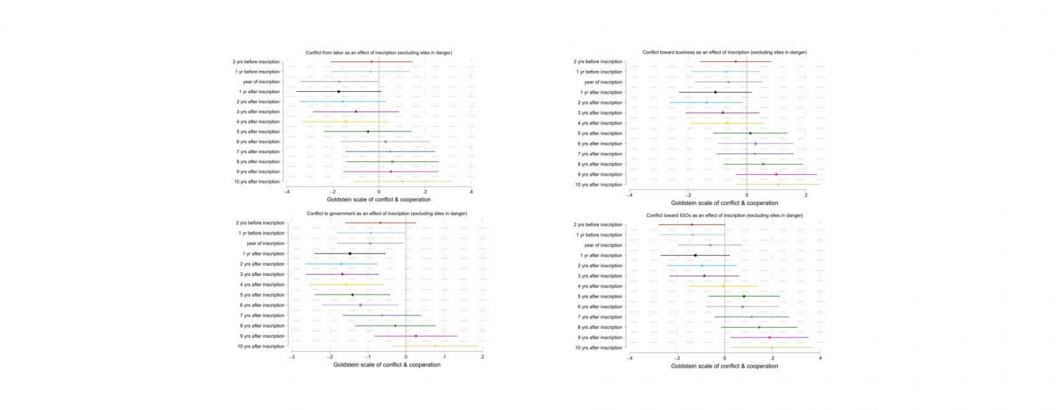
A new study by researchers at the Copenhagen Business School, Duke University and Wharton School explores protest activity:
We empirically test for the mechanisms underlying protest against the liberal international economic order in a context where we can causally isolate the mobilizing role of relative economic deprivation and identify both the source and target of expressed conflict. Using a difference-in-difference design at a fine-grained geographic level of analysis we show that micro-level geographic locations “treated” with the inscription of cultural and natural heritage sites of outstanding universal value onto the World Heritage list experience an increase in conflict originating from labor organizations who frequently perceive their share of tourism benefits to be unfair or inadequate towards intergovernmental organizations, national governments and businesses who either economically benefit from the liberalization, are supporters of those who benefit or are associated with that liberalization. These results provide causal evidence in support of greater efforts to compensate the losers of economic liberalization ex ante both in proximity to World Heritage sites and, we argue, for those negatively impacted by liberalization more broadly.